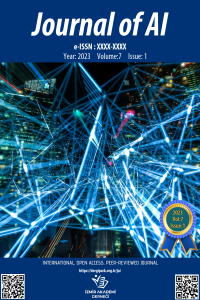The Metaverse: A Brave New "World"
As we stand on the precipice of the next significant socio-technological revolution, the Metaverse promises to transform our lives as profoundly as the internet did, if not more. The Metaverse is evolving as an immersive, collaborative, and interactive digital space, of ering early glimpses of its vast potential. The scope of this digital universe extends far beyond just entertainment and gaming—it provides innovative ways to revolutionize education, business, healthcare, and finance, including burgeoning areas like cryptocurrencies. However, without establishing appropriate safeguards, the Metaverse also poses considerable challenges. The pervasive risks to privacy, security, and safety of individuals in an environment where redress mechanisms are yet undefined, are areas of concern that need urgent attention. This article defines the Metaverse, its evolution, potential benefits, and potentially harmful impact due to data privacy. Subsequently, it shares the results of a bibliographic study demonstrating that the Metaverse is becoming popular along with ethics and AI. Next, it presents the results from a global survey which suggests that the Metaverse implies cautiously optimistic tones. Moreover, the article introduces an AI-based new technology as an example between today's and tomorrow’s worlds. Based on the results, it concludes why it is important to establish educational programs and guidelines for applying the technologies in the Metaverse. Finally, it makes recommendations for new research and other actions for the entire Metaverse ecosystem.
Anahtar Kelimeler:
Metaverse, Ethics, Digital anthropology, AI, Artificial intelligence, AR, VR
The Metaverse: A Brave New "World"
As we stand on the precipice of the next significant socio-technological revolution, the Metaverse promises to transform our lives as profoundly as the internet did, if not more. The Metaverse is evolving as an immersive, collaborative, and interactive digital space, of ering early glimpses of its vast potential. The scope of this digital universe extends far beyond just entertainment and gaming—it provides innovative ways to revolutionize education, business, healthcare, and finance, including burgeoning areas like cryptocurrencies. However, without establishing appropriate safeguards, the Metaverse also poses considerable challenges. The pervasive risks to privacy, security, and safety of individuals in an environment where redress mechanisms are yet undefined, are areas of concern that need urgent attention. This article defines the Metaverse, its evolution, potential benefits, and potentially harmful impact due to data privacy. Subsequently, it shares the results of a bibliographic study demonstrating that the Metaverse is becoming popular along with ethics and AI. Next, it presents the results from a global survey which suggests that the Metaverse implies cautiously optimistic tones. Moreover, the article introduces an AI-based new technology as an example between today's and tomorrow’s worlds. Based on the results, it concludes why it is important to establish educational programs and guidelines for applying the technologies in the Metaverse. Finally, it makes recommendations for new research and other actions for the entire Metaverse ecosystem.
Keywords:
Metaverse, Ethics, Digital Anthropology, AI, Artificial Intelligence, AR, VR,
___
- Babu M U, A., & Mohan, P . (2022). Impact of the Metaverse on the Digital Futur e: People’s Perspective. 2022 7th International Conference on Communication and Electronics Systems (ICCES). Doi: 10.1109/icces54183.2022.9835951.
- Vladimirov, I., Nenova, M., Nikolova, D., & Terneva, Z. (2022). Security and Privacy Protection Obstacles with 3D Reconstructed Models of People in Applications and the Metaverse: A Survey. 57th International Scientific Conference on Information, Communication and Energy Systems and Technologies (ICEST). Doi:10.1109/icest55168.2022.9828791.
- Park, MS, & Kim, YG. (2022). A Metaverse: Tax onomy, Components, Applications, and Open Challenges. IEEE Access 10: 4209–5. Doi: 10.1109/access.2021.3140175 .
- Spiky.ai (2022): Empower engagement. Maximize potential. https://www.spiky.ai/about-us
- Stephens, M. (2022). The IEEE Global Initiative on Ethics of Extended Reality (XR) - Metaverse and its Governance. IEEE Internet Computing 12 (1).
- Srivastava, S. (2022). Business Applications and Benefits of Metaverse. Appinventiv. https://appinventiv.com/blogmetaverse-use-cases-and-benefits/.
- Heller, B. (2021). Watching Androids Dream of Electric Sheep: Immersive Technology, Biometric Psychography, and the Law. Scholarship@Vanderbilt Law. https://scholarship.law.vanderbilt.edu/jetlaw/vol23/iss1/1/.
- Kellenberger, K., & Davidson, L. (2019). Innovation: A Double-Edged Sword. Simple Talk. https://www.red-gate.com/simple-talk/opinion/editorials/innovation-a-double-edged-sword/
- Di Pietro, R., & Cresci, S. (2021). Metaverse: Security and Privacy Issues. 2021 Third IEEE International Conference on Trust, Privacy and Security in Intelligent Systems and Applications (TPS-ISA). Doi: 10.1109/tpsisa52974.2021.00032
- Mozumder, M. A. I., Armand, T. P. T., Imtiyaj Uddin, S. M., Athar, A., Sumon, R. I., Hussain, A., & Kim, H.-C. (2023). Metaverse for Digital Anti-Aging Healthcare: An Overview of Potential Use Cases Based on Artificial Intelligence, Blockchain, IoT Technologies, Its Challenges, and Future Directions. Applied Sciences, 13(8), 5127. MDPI AG. Doi:10.3390/app13085127
- Damar, M. (2021). Metaverse Shape of Your Life for Future: A bibliometric snapshot . Journal of Metaverse , 1 (1) , 1-8 . Retrieved from https://dergipark.org.tr/en/pub/jmv/issue/67581/1051371
- Yemenici, A. D. (2022). Entrepreneurship in The World of Metaverse: Virtual or Real? . Journal of Metaverse , 2 (2) , 71-82 . DOI: 10.57019/jmv.1126135
- Wisnu Buana, I. M. (2023). Metaverse: Threat or Opportunity for Our Social World? In understanding Metaverse on sociological context . Journal of Metaverse , 3 (1) , 28-33 . DOI: 10.57019/jmv.1144470
- Serpil, H. & Karaca, D. (2023). The Metaverse or Meta-Awareness? . Journal of Metaverse , 3 (1) , 1-8 . DOI: 10.57019/jmv.1093347
- Wang, G., Badal, A., Jia, X. et al. Development of metaverse for intelligent healthcare. Nat Mach Intell 4, 922–929 (2022). Doi:10.1038/s42256-022-00549-6
- Yayın Aralığı: Yıllık
- Başlangıç: 2017
- Yayıncı: İzmir Akademi Derneği
